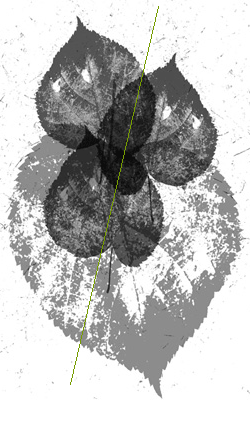Two American Folk Songs
for mezzo-soprano and sinfonietta
Duration: ca. 11 minutes
Composed: 2014
Commissioned by: the Vlaams Sinfonietta, Raf de Keninck, conductor
The Vlaams Sinfonietta commissioned me and 4 other composers to compose new pieces based on folk songs from our respective countries. The project is inspired by Luciano’s ‘Folk Songs’, a cycle of 11 songs based on folk songs from different countries. “Two American Folk Songs” was premiered by Olga Romanko and the Vlaams Sinfonietta, Raf de Keninck, conductor, on 3 Oktober 2014 at Schouwburg CC Zwaneberg in Heist-op-den-Berg, Belgium.
Program notes:
That which drew me to I am a Poor Wayfaring Stranger and Shenandoah, apart from their innate beauty, is the haziness of their origins and histories. There are several stories—and many, many variations in lyrics—associated with each of these old American folk songs. (N.B. I have known both of these songs for many years. For Two American Folk Songs, I have chosen lyrics that feel the most familiar to me.) We do not know exactly who wrote these songs; further, it is not even clear from which [American] communities of people they originated. But perhaps most fascinating to me is that each song has been sung and ‘used’ by not one but by a number of different American peoples over time. If we consider the difficult history of race relations in the U.S., it is remarkable to think that the same song could have been held close by blacks, by whites, by pioneers, by farmers living in the hills of Appalachia…
If we consider Wayfaring Stranger, for example: it has been described variously as American spiritual, folk spiritual, black spiritual, traditional Southern spiritual, Southern folk hymn, among others! It comes as no surprise that so many different lyrics exist. Wayfaring Stranger probably originated in the years following the American Revolutionary War (1775-83), in the southern Appalachian Mountains. There is evidence that suggests that it was born as a black American spiritual, but that those origins have been concealed over time. While there are many possible variations in lyrics, they all tell the same story: Wayfaring Stranger sings of the pain and hardship of daily life, while holding onto the dream of a bright, beautiful life after death.
In contrast, the stories told by Shenandoah‘s lyrics are remarkably varied. Some lyrics, as in Two American Folk Songs, tell the story of a Missouri river trader in love with the daughter of Native American chief Shenandoah; others point to a pioneer’s—or possibly an [American Civil War] Confederate soldier’s—longing for his homeland along the Shenandoah River in Virginia; a third interpretation associates the singing of the song with escaped slaves, who were said to sing the song in gratitude to the Shenandoah River because crossing it allowed their scent to be lost. And there are more! Shenandoah probably originated with the French-Canadian voyageurs or the Missouri River boatmen in the late 19th century, post-American Civil War. It seems to have gradually moved down the Missouri to the Mississippi River and then out to sea, where it was sung by American sailors as a sea shanty (that is, a song sung to help coordinate tasks on board a ship such as hauling anchor) on their travels around world. Remarkably different peoples must have sung these remarkably different stories through this single song.
I love that the origins of these two very different songs are so unclear, and that their histories are so rich. They have passed through so many hands. And now they have passed, ever so briefly, into my care…
(main sources: Acoustic Music Archive, balladofamerica.com, bellaonline.com, manhattanbeachmusic.com)
